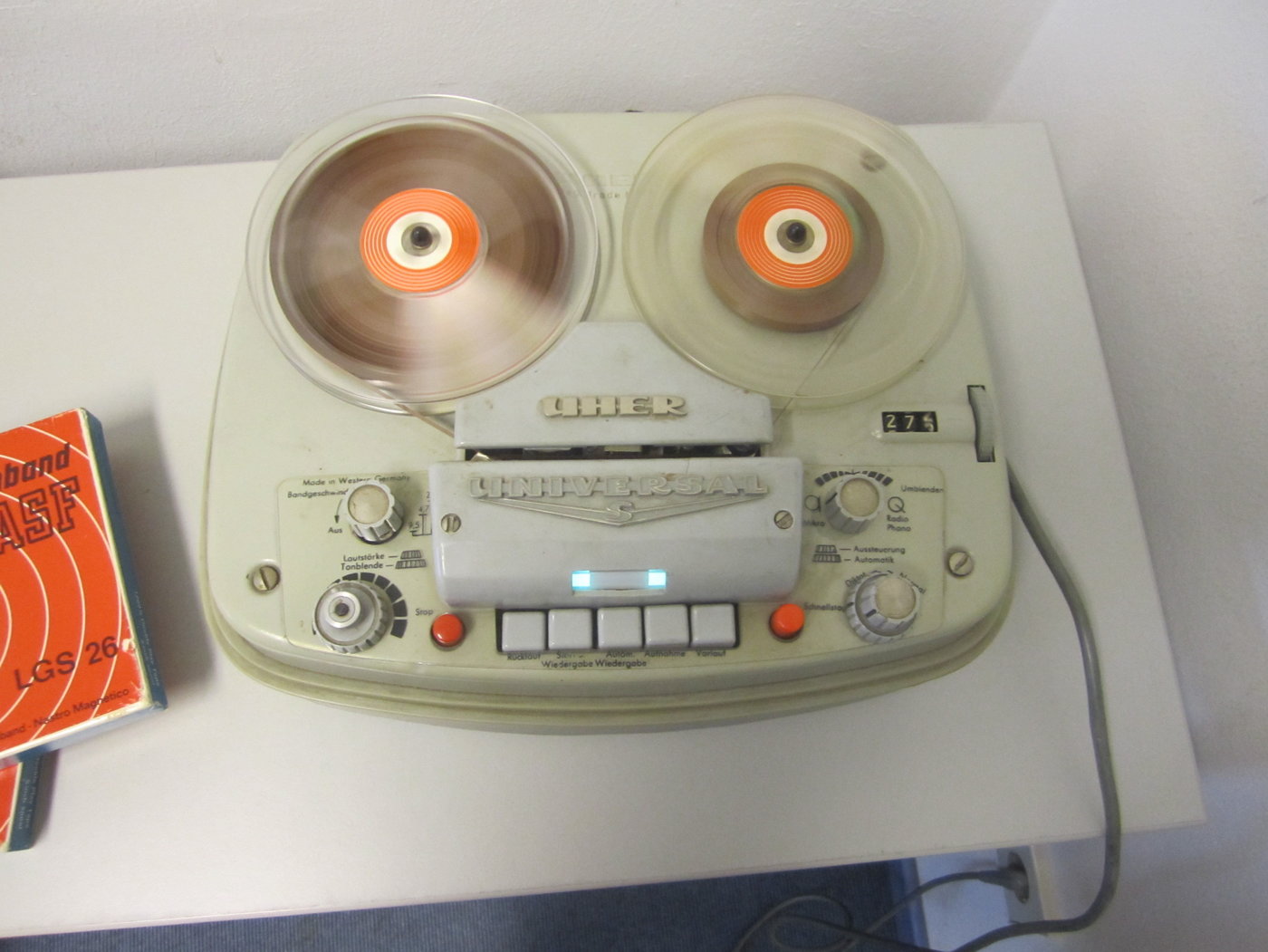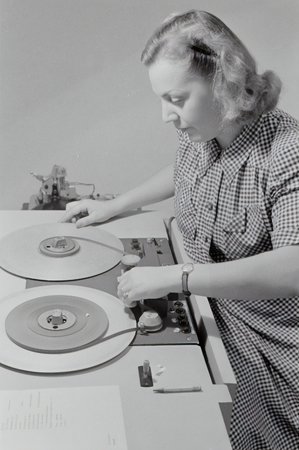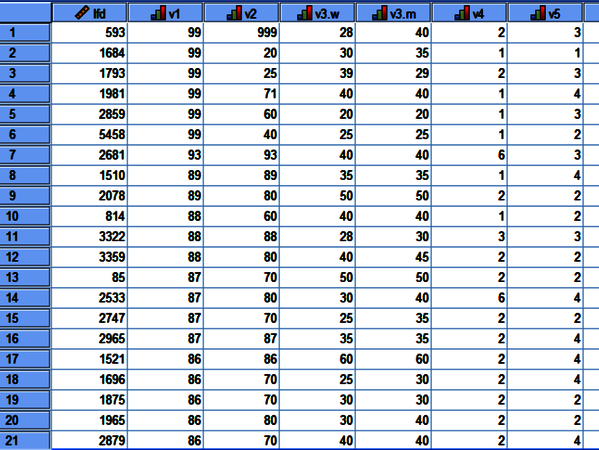 Writing Contemporary History with Social Data: Plans for a Digital Infrastructure
Writing Contemporary History with Social Data: Plans for a Digital Infrastructure
Christina von Hodenberg
c.hodenberg@ghil.ac.uk
Over the last ten years, contemporary historians have increasingly been working with a new type of source – social data – and in the process, they have opened up new topics for research. ‘Social data’ are the raw materials collected by public agencies and authorities and by contemporary social science research (both qualitative and quantitative), as well as surviving data from audio-visual media archives. Heterogeneity and complexity are the main features of social data, which pose ethical, methodological, and conceptual challenges for historians. In the course of the ‘scientization’ of the social that took place in the 20th century, these data have become ever more numerous and complex. Contemporary history, economic history, and social history of the 20th and 21st centuries are increasingly dependent on social data as a source if they are to do justice to their task of providing a critical appraisal of the recent past.
At present, historians often have to put considerable effort and expense into making social data accessible, and classifying and processing them for re-evaluation. Legal questions arise: who do the data belong to? Do the ethical standards and data protection regulations in force when the data were collected permit their use by contemporary historians? In addition, the actual sources (such as tables, texts, card indexes, tapes, transcriptions, video interviews, questionnaires, photographs, punch cards, etc.) are generally very heterogeneous, while the context in which they were created is often only incompletely documented. The development of an appropriate support infrastructure is one of the current challenges for a research-oriented digital history.
This is where the working group ‘Social Data and Contemporary History’, headed by Lutz Raphael (University of Trier) and Christina von Hodenberg (GHI London), comes in. Its aim is to open up the research potential of quantitative and qualitative social data. The working group, funded by the Werner Reimers Foundation (Bad Homburg) since 2017, holds annual workshops that bring together historians, social scientists working in historical fields, and representatives of data-holding institutions. There are certain overlaps with the current initiative to create national research data infrastructures (NFDI) in Germany.
In September 2019, the German Research Foundation (Deutsche Forschungsgemeinschaft) approved a feasibility study that ran from early 2020 to late 2022, with two employees working in Cologne and Berlin. In order to promote networking among historians, the Historikertag held in October 2021 featured a section to discuss the potential and challenges involved in developing a research data infrastructure for the use of social data by historians. Workshops held at the GHI London in the autumn of 2021, and in Bad Homburg in November 2022 further intensified the dialogue between curators of data, economic and social historians, contemporary historians, and practitioners in related social science disciplines. The GHI London is particularly committed to promoting international dialogue beyond Germany’s borders.
Christina von Hodenberg’s commitment to a new infrastructure for the use of social data in historical research goes back to her work on the documents of the Bonn longitudinal study of aging (BOLSA, 1964–84). Her book Das andere Achtundsechzig: Gesellschaftsgeschichte einer Revolte expanded the source basis for the historicization of the 1968 student protests by using, for the first time, the heterogeneous gerontological social data of this collection, which includes taped surveys, SPSS datasets, and patient files. The Volkswagen Foundation financed a project to digitize these sources and enrich them by capturing metadata, which was conducted by Katrin Moeller (Martin Luther University of Halle-Wittenberg) and Christina von Hodenberg and completed in 2020. Since then, the BOLSA sources have been made accessible to researchers and archived for the long term in an online portal developed by the Historical Data Centre Saxony-Anhalt at the Martin Luther University of Halle-Wittenberg.
Project partners include:
Professor Lutz Raphael, University of Trier. In his most recent book, Jenseits von Kohle und Stahl: Eine Gesellschaftsgeschichte Westeuropas nach dem Boom, he uses different kinds of social data to gain new perspectives on the historicization of the upheavals after the boom.
Professor Sabine Reh, DIPF | Leibniz Institute for Research and Information in Education. As director of the Library for Research on Educational History (BBF), a division of DIPF, she represents a research library that collects sources on the history of German education and makes them available, increasingly in a digital format, to scholars in Germany and internationally. They include unique sources and both analogue and digital data from projects on empirical educational research since the 1950s, all held in the BBF’s special archive.
Dr Pascal Siegers, head of the Research Data Centre of the German General Social Survey (ALLBUS) and of the Team National Surveys at GESIS, and chair of the Committee on Research Data Infrastructure (FDI) at the German Data Forum (Rat SWD). As the institutional curator of research data in the social sciences and history, GESIS is an important stakeholder in increasing the retrievability of research data and networking existing infrastructures.
Prof Dr Kerstin Brückweh, BTH Berlin, leader of the project ‘The Longue Durée of 1989/90: Regime Change and Everyday Life in East Germany’ at the Centre for Contemporary History Potsdam (ZZF). The researchers on this project deal with life worlds and system change in East Germany before, during, and after 1989. In addition to archival material, media reports, and oral history, they draw on secondary analyses of social data.
Related publications
with Kai Naumann and Pascal Siegers, ‘Wie Archive und Forschungsdaten zueinanderfinden – ein gegenseitiger Lernprozess’, in Archiv in Theorie und Praxis, 3/2023
with Pascal Siegers, ‘Alte Frauen in der Bundesrepublik am Beispiel der BOLSA-Sozialdaten: Eine Korrespondenzanalyse nach Bourdieu’, Geschichte und Gesellschaft, 48/1 (2022), 59–88 [Read here]
with Kerstin Brückweh, Pascal Siegers, Lutz Raphael, Sabine Reh, Clemens Villinger, Kathrin Zöller, ‘Sozialdaten als Quellen der Zeitgeschichte. Zur Einführung’, Geschichte und Gesellschaft, 48/1 (2022), 5–27 [Read here]
Kathrin Zöller, Clemens Villinger, Pascal Siegers, Sabine Reh, Lutz Raphael, Christina von Hodenberg, Kerstin Brückweh, Sozialwissenschaftliche Forschungsdaten als historische Quellen: Welche Infrastrukturbedarfe hat die zeitgeschichtliche Forschung? RatSWD Working Paper 277/2022 (Berlin, 2022). [Read here]


